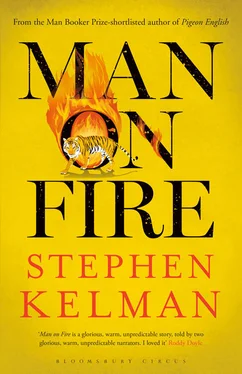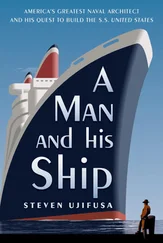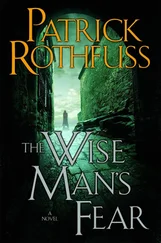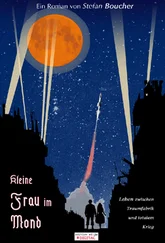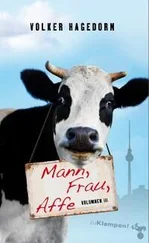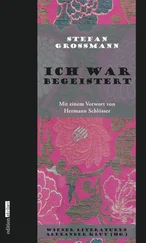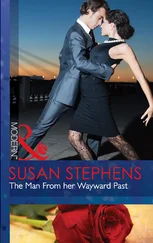I want to ask her why we stopped trying to impress each other but it sounds like such a childish question. It means the world and it wouldn’t change a thing.
I look down at her feet all misshapen from the diabetes and ashamed of the baby steps they have to take to keep her from falling and I remember how once the world was new to her and so was I. I want her to have what I had in India, a taste of something larger than life. I want her to have always stayed the same as the first time I saw her.
I kneel down and dry her feet where she stands holding on to the sink. I’m very careful. I don’t look up. When I spread her toes and ply the towel between them it should tickle but she’s numb in her extremities. That she feels so little of the world around her strikes me as the saddest thing, and I tell her my crying is in reaction to the ammonia in the floor cleaner they use here.
A nurse follows us back to the room with a needle for Bibhuti and a pot of kheer for Jolly Boy, stolen in kindness from the lunchtime trays. He picks out the pistachios and gives them to me. He knows I like them. We all hold our breaths while the nurse refreshes Bibhuti’s drugs. The old line when she removes it weeps bright red blood and we’ve all agreed to take this as a strong sign of life. We should only start to worry if the blood dries up.
Bibhuti breathes loud and steady, unhurting in sleep. The nurse stabs at his hand in lining up the new needle and beads of fresh blood rise on his skin. I feel it as an outrage. No one else will say it so I do.
‘Can you be careful, you’re hurting him.’
I hear anger in my voice and I’m not surprised by it. If anyone hurts him they’ll answer for it.
No one mentioned the blood. I went through the whole day stained by it and no one had had the decency to tell me. In the office they grumbled and clicked their mice like nothing was different. I stalled at another red light, no one sounded their horn or flashed me to clue me in. I showed a couple round a house and the man’s eyes skimmed over me like I was a body misplaced and found again in the wrong shoes, the woman whispered something to him on the way out that I’d taken for horseplay and made no move to enlighten me. The birds didn’t change their tune.
I came home from work and Ellen jumped out of her skin. She took me to the mirror so I could see for myself. My neck was covered in blood. A thick vivid band of it spread from my ear to my collar.
I couldn’t tell her how it had gotten there. I wasn’t even sure it was mine until I felt it. Then I found the gash. I retraced my steps and decided I must have cut myself shaving in the morning and not noticed. The blood had leaked, unchecked, and dried over the day. I’d been walking around with it, defaced, and no one had said anything. No one had asked if I was alright, everyone too wrapped up in themselves. And I hadn’t had much reason lately to look at myself in the mirror.
Ellen cleaned me up. Her fingers on me drew out goosebumps. I held her to me as she dabbed at the wound, pulled myself in to the softness around her middle. I felt an intoxicating pity for her and her for me.
‘What did you do to yourself?’
‘I know,’ I said. ‘I’m silly.’
We were sexless and hypothetical. Children playing war wounds, finding intimacy in skinned knees and bee stings.
Later on I sat in front of the TV and pushed some meat around my plate. I was shaken and fired up for a killing. I watched a crocodile eat an ox because the ox was too slow crossing the river. There was no urgency there. I sided with the predators.
I changed channels and there was Bibhuti.
He was stripped down to his underpants and straddling three slabs of concrete. He was sleek and fearless and he didn’t flinch when the sledgehammer came down. I watched him take the hit. I heard the crack of concrete and felt the release when the fragments fell away. Someone lifted up the pieces to show that they were broken.
The studio audience applauded the footage. They were shown it again in slow motion and they applauded even harder. There was laughing too but it was the nervous laughter of people who’d just witnessed a miracle and didn’t know how to greet it.
‘Look at this guy, he’s brilliant,’ I said to Ellen when she came in from the kitchen. ‘Look how calm he is. He doesn’t give a shit.’
‘He’s mental. They’re laughing at him.’
‘They’re idiots, they don’t understand.’ I was lost in admiration. I couldn’t put my finger on it but there was something about him that triggered the same nerve in me that fired when I first saw George Best cut a shaky defence to ribbons. It left me bewildered and short of breath. It plucked at my manhood and incited my sense of the magnificent. Ellen didn’t get it. She dunked a biscuit in her tea, swore when the biscuit broke in half and fell in.
Bibhuti’s face was unmoved, his body unmarked. He’d bargained with death and come out on top. He acknowledged this without surprise or ceremony. That’s what impressed me the most. He’d known all along that he was the stronger one. He’d always believed in it as firmly as the ground beneath his feet.
I wanted what he had. He shimmered and crackled and the world bent to his will.
They lifted him up on their shoulders and offered him to their gods but their gods felt unqualified to take him. He looked into the camera. He was looking right at me.
He made a dare.
That’s what it was, pure and simple. He dared me to forget the blood on my neck and my oxen caution and find in myself something unassailable. I sat up in my chair, a strange electricity running through me of decisions made that would change the way my life would turn out. I resolved to find out as much about him as I could, to steal his secrets and make armour out of them.
I woke up under floodlights and a sky of unholy noise. Someone hit a four and a celebration jingle thundered around the near-empty stadium. The small pocket of diehards in the terrace below us blew their plastic trumpets and banged their drums. They prodded their giant foam fingers skyward. They weren’t fooling anybody. There were more people on the pitch than in the stands.
‘It should not be like this,’ Bibhuti grumbled, brushing his moustache with restless fingers. ‘Nobody is interested in the state league. It costs more to run the generator to light the stadium than the teams can repay from ticket sales. If there was not a sponsorship agreement in place the entire league would shut down.’
‘Are those real cheerleaders?’ I asked.
The girls standing pitchside were glittered up to the nines, shimmering semi-precious behind the boundary line. I could tell from up here that they were as bored as me. Their pompoms were heaped on the grass like sleeping emus.
‘There is a halftime show, with dancing and music. The league introduced these measures to attract the audience. It has received a mixed response.’
A man with a clipboard wandered over from the pavilion and gave the girls a motivational talking-to. The girls shook themselves into formation and ran through a game rehearsal of their routine. The pot-bellied cameraman resolutely ignored their bouncing, kept his lens pointed at the players.
Bibhuti took a reading of the score from the Jumbotron and jotted it down in his notebook.
Behind us Jolly Boy pretended to be imprisoned in the corporate box. He made a panicked face against the window, pasted a ghostly wet kiss onto the glass. It magically evaporated in the conditioned air.
The phone had woken me up from another dream about Oscar. This time I was chasing him through our old house, room by room. He was always just too far ahead of me to see. I could still hear his wings beating when I picked up the phone. Bibhuti had an assignment, a report for a cricket match at the new stadium in Navi Mumbai. He had open access, having set a record there a couple of years ago. A mile of cartwheels on the knuckles of one hand. He wanted to show me the scene of his triumph. He thought it would inspire me. I’d reached for the fresh bottle by the bed and taken a drink to steady myself. I’d bought mints to mask the smell of booze on my breath.
Читать дальше
